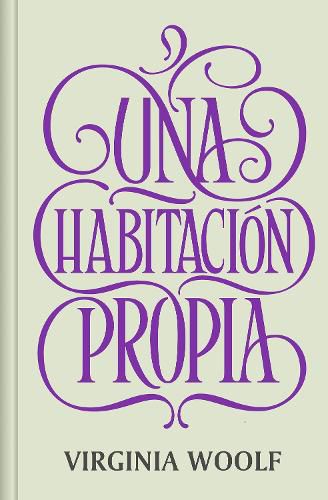Readings Newsletter
Become a Readings Member to make your shopping experience even easier.
Sign in or sign up for free!
You’re not far away from qualifying for FREE standard shipping within Australia
You’ve qualified for FREE standard shipping within Australia
The cart is loading…






Edicion en tapa dura del ensayo que se ha convertido en un icono de la literatura modernista y del feminismo, con una nueva y cuidada traduccion.
Texto senero del feminismo del siglo XX, basado en dos conferencias impartidas por Virginia Woolf en la universidad de Cambridge, Una habitacion propia indaga con singular ironia y talento narrativo en los graves efectos que tuvo la discriminacion sexual en la creatividad de las mujeres, al tiempo que propone un camino liberador a traves de la independencia economica.
En esta nueva edicion, la esplendida traduccion de Ana Mata Buil, basada en los originales mas fiables, presta especial atencion a las cuestiones de genero. Ademas, se incluye como apendice el articulo <>, en el que Woolf publico por primera vez los postulados centrales de su famoso libro.
ENGLISH DESCRIPTION
A Room of One's Own is an essay written by Virginia Woolf. It was published in 1929 and is based on two lectures given by the author in 1928 at two colleges for women at Cambridge. In this famous essay, Woolf addressed the status of women, and women artists in particular. In this essay, the author also asserts that a woman must have money and a room of her own if she is to write. According to Woolf, women's creativity has been curtailed due to centuries of prejudice and financial and educational disadvantages.
To emphasize her view, she offers the example of an imaginary gifted but uneducated sister of William Shakespeare, who, discouraged from all eventually kills herself. This imaginary woman never writes a word and dies by her own hand, her genius unexpressed. If only she had found the means to create, argues Woolf, she would have reached the same heights as her immortal sibling.
Woolf celebrates the work of women who have overcome that tradition and become writers, including Jane Austen, George Eliot, and the Bronte sisters, Anne, Charlotte, and Emily. In the final section Woolf suggests that great minds are neutral and argues that intellectual freedom requires financial freedom.
$9.00 standard shipping within Australia
FREE standard shipping within Australia for orders over $100.00
Express & International shipping calculated at checkout
Edicion en tapa dura del ensayo que se ha convertido en un icono de la literatura modernista y del feminismo, con una nueva y cuidada traduccion.
Texto senero del feminismo del siglo XX, basado en dos conferencias impartidas por Virginia Woolf en la universidad de Cambridge, Una habitacion propia indaga con singular ironia y talento narrativo en los graves efectos que tuvo la discriminacion sexual en la creatividad de las mujeres, al tiempo que propone un camino liberador a traves de la independencia economica.
En esta nueva edicion, la esplendida traduccion de Ana Mata Buil, basada en los originales mas fiables, presta especial atencion a las cuestiones de genero. Ademas, se incluye como apendice el articulo <>, en el que Woolf publico por primera vez los postulados centrales de su famoso libro.
ENGLISH DESCRIPTION
A Room of One's Own is an essay written by Virginia Woolf. It was published in 1929 and is based on two lectures given by the author in 1928 at two colleges for women at Cambridge. In this famous essay, Woolf addressed the status of women, and women artists in particular. In this essay, the author also asserts that a woman must have money and a room of her own if she is to write. According to Woolf, women's creativity has been curtailed due to centuries of prejudice and financial and educational disadvantages.
To emphasize her view, she offers the example of an imaginary gifted but uneducated sister of William Shakespeare, who, discouraged from all eventually kills herself. This imaginary woman never writes a word and dies by her own hand, her genius unexpressed. If only she had found the means to create, argues Woolf, she would have reached the same heights as her immortal sibling.
Woolf celebrates the work of women who have overcome that tradition and become writers, including Jane Austen, George Eliot, and the Bronte sisters, Anne, Charlotte, and Emily. In the final section Woolf suggests that great minds are neutral and argues that intellectual freedom requires financial freedom.